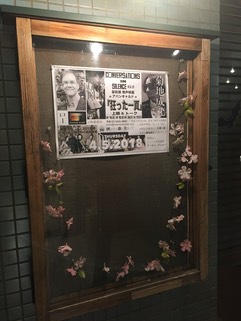News and Opinion
Kawabata and Cinema: The Ambivalence of Knowledge, Medium, and Influence
In 2014 I had the fortune of participating in an international symposium on the Nobel Prize winning novelist, Kawabata Yasunari, that took place in Paris. I wrote about that experience here. There I spoke about Kawabata’s relationship with cinema, a topic that was an extension of my book on A Page of Madness, a film which Kawabata helped create. Through the hard work of Wada Hirofumi and others, a Japanese anthology emerged first from that conference at the end of 2016, which contains a short version of my paper on Kawabata and film (I introduced that here).
Well, the full version in English finally came out in January of this year. Thanks to the diligence of Michael Bourdaghs and others, the journal Japan Forum published an issue devoted to the theme “Kawabata Yasunari in the Twenty-First Century” largely composed of selected papers from the symposium. It features a wonderful piece by the novelist Tawada Yoko, as well as thought provoking scholarly articles by Irmela Hijiya-Kirschnereit, Kono Kensuke, Nihei Masato, Tomi Suzuki, and Wada Hirofumi.
Conversations in Silence 1: A Page of Madness, a Benshi, and Music

I forgot to announce this before it happened, but last week on April 5th, I got to participate in a rather unique event centered on Kinugasa Teinosuke’s A Page of Madness (Kurutta ichipeiji), about which I wrote a book. At the event space Haretara Sora ni Mame Maite (meaning “When it clears sow beans in the sky”—or Haremame for short), there was a screening of the film with Kataoka Ichiro doing benshi narration and the jazz musician Kikuchi Naruyoshi deejaying music for the film. Since Haremame is a small but delightful space (with tatami mats!), we used the Blu-ray of the film I discussed earlier, with permission from Flicker Alley. I introduced the film and MC’d the after-screening discussion. It was the first in a series of three silent film events called “Conversations in Silence” that the three of us will be doing at Haremame.
As I mentioned in the book, there is no historical record (that I could find), of the music that was performed with the film upon its first release, or of the style of benshi narration. What I could find is that it showed at the Tokyokan narrated by Ishii Masami and Tamai Kyokuyo with music selected by Oshima Kyotaro, or at Kyoto’s Shochikuza with Ishida Kyokka as the benshi and music arranged by Sasai Sei, to provide two instances. The great benshi Tokugawa Musei did perform the narration at Shinjuku’s Musashinokan, and there is a chance he did it in a style similar to his explanation of The Cabinet of Dr. Caligari (check out Kyoko Omori’s collection of clips of Caligari synched with a recording of the narration that Musei provided in 1968), since A Page of Madness was influenced by that work. But Naoki Sanjugo (after whom the Naoki Prize is named), when noting Musashinokan audience members praising Musei for explaining that incomprehensible film, complained that it was contradictory for a film that rejected intertitles, if not also conventional meaning making, to have a benshi. So there was the question of what role sound—both words and music—was supposed to play with this supposedly avant-garde film.

